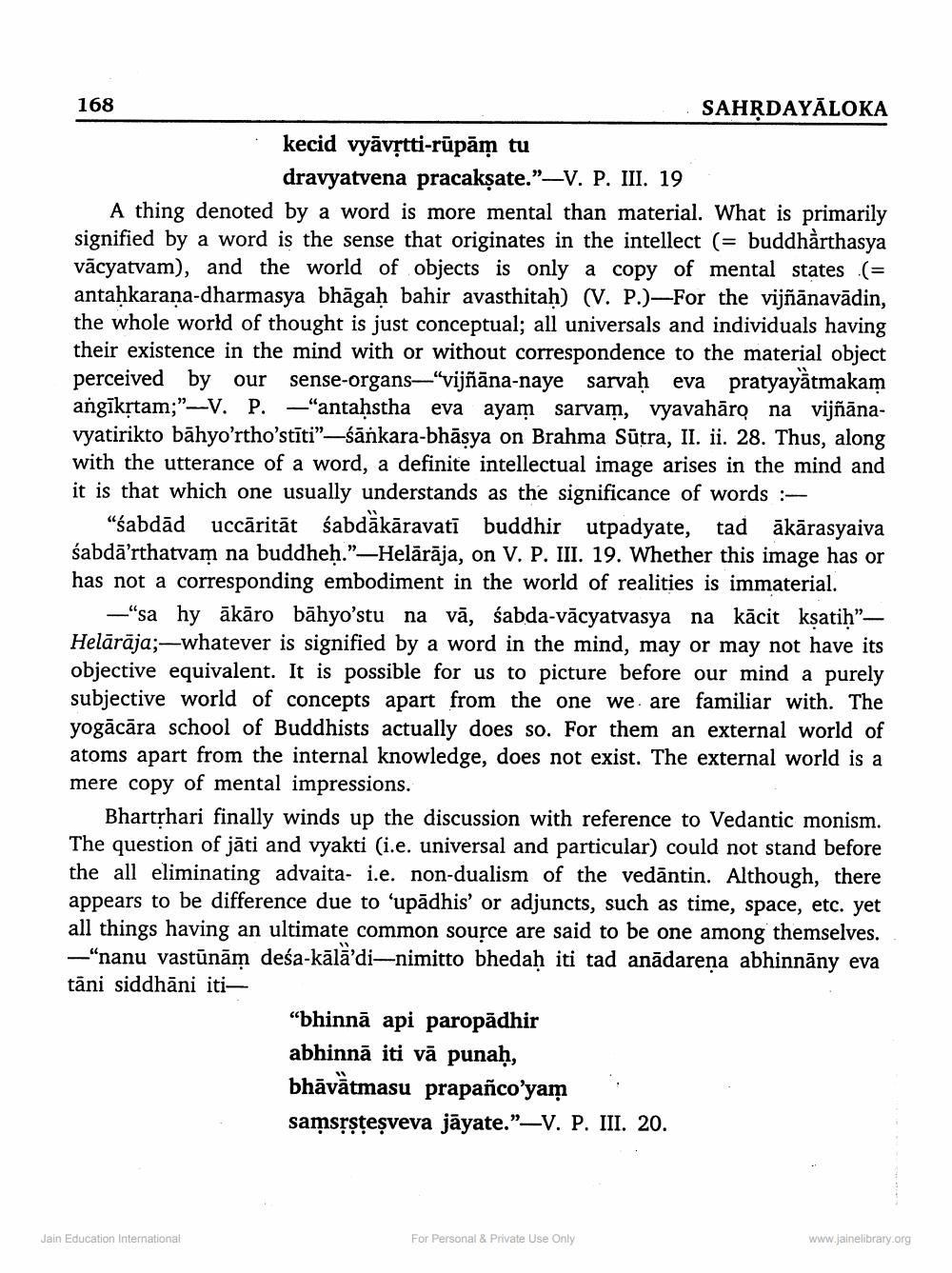________________
168
kecid vyāvṛtti-rūpām tu
dravyatvena pracakṣate."-V. P. III. 19
A thing denoted by a word is more mental than material. What is primarily signified by a word is the sense that originates in the intellect (= buddharthasya vācyatvam), and the world of objects is only a copy of mental states (= antaḥkarana-dharmasya bhāgaḥ bahir avasthitaḥ) (V. P.)-For the vijñānavādin, the whole world of thought is just conceptual; all universals and individuals having their existence in the mind with or without correspondence to the material object perceived by our sense-organs "vijñāna-naye sarvaḥ eva pratyayatmakam angīkṛtam;"-V. P. "antaḥstha eva ayam sarvam, vyavahāro na vijñānavyatirikto bahyo'rtho'stīti"-śānkara-bhāṣya on Brahma Sutra, II. ii. 28. Thus, along with the utterance of a word, a definite intellectual image arises in the mind and it is that which one usually understands as the significance of words :
"śabdād uccaritat śabdākāravatī buddhir utpadyate, tad ākārasyaiva śabdā'rthatvam na buddheḥ."-Helārāja, on V. P. III. 19. Whether this image has or has not a corresponding embodiment in the world of realities is immaterial.
SAHṚDAYALOKA
-"sa hy ākāro bahyo'stu na vā, sabda-vacyatvasya na kācit kṣatiḥ"Helārāja;-whatever is signified by a word in the mind, may or may not have its objective equivalent. It is possible for us to picture before our mind a purely subjective world of concepts apart from the one we are familiar with. The yogācāra school of Buddhists actually does so. For them an external world of atoms apart from the internal knowledge, does not exist. The external world is a mere copy of mental impressions.
Bhartṛhari finally winds up the discussion with reference to Vedantic monism. The question of jāti and vyakti (i.e. universal and particular) could not stand before the all eliminating advaita- i.e. non-dualism of the vedantin. Although, there appears to be difference due to 'upadhis' or adjuncts, such as time, space, etc. yet all things having an ultimate common source are said to be one among themselves. -"nanu vastūnām deśa-kāla'di-nimitto bhedaḥ iti tad anādareṇa abhinnany eva tāni siddhāni iti
Jain Education International
"bhinnā api paropādhir
abhinnā iti vā punaḥ, bhāvātmasu prapañco'yam
samsṛṣṭeşveva jāyate."-V. P. III. 20.
For Personal & Private Use Only
www.jainelibrary.org




